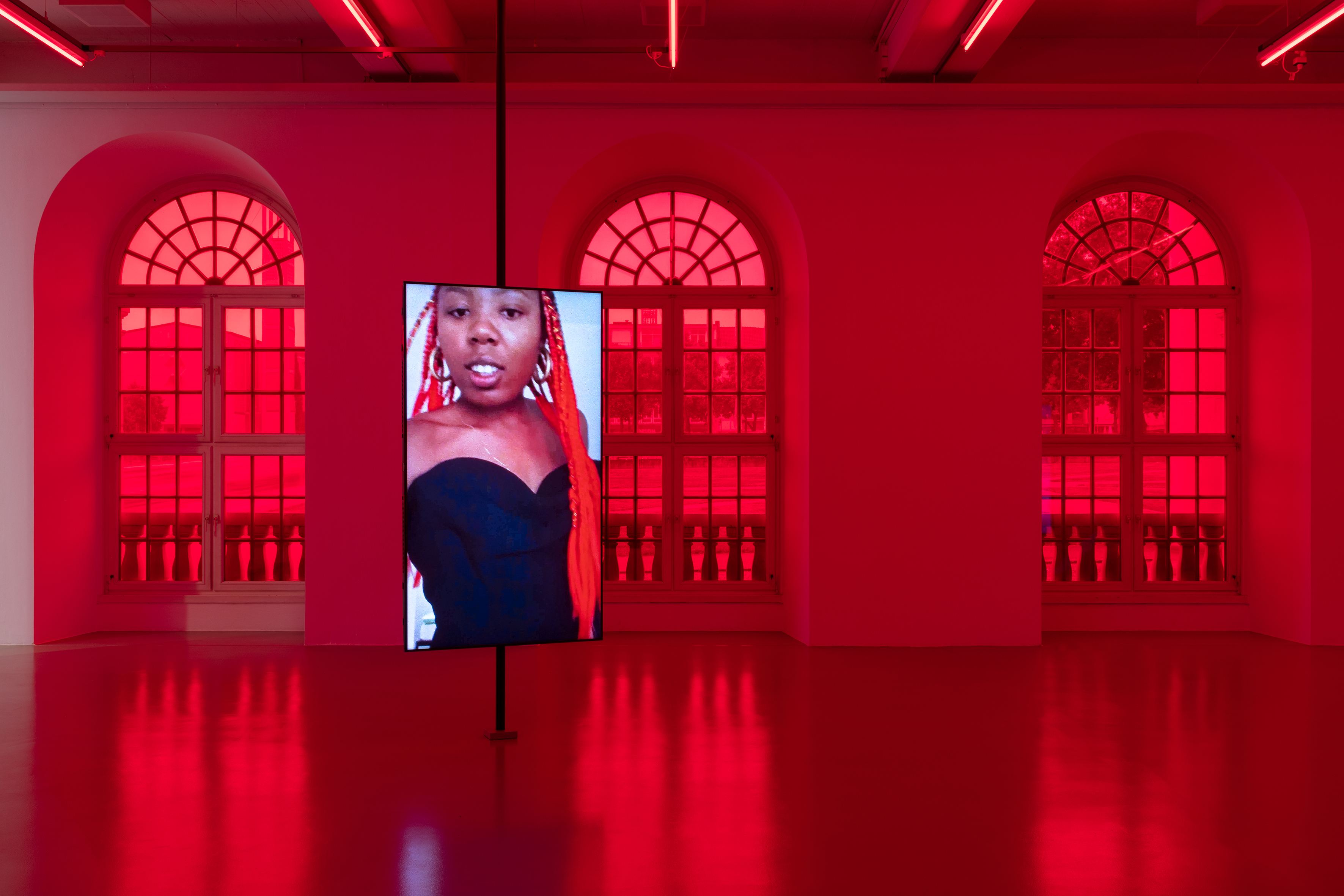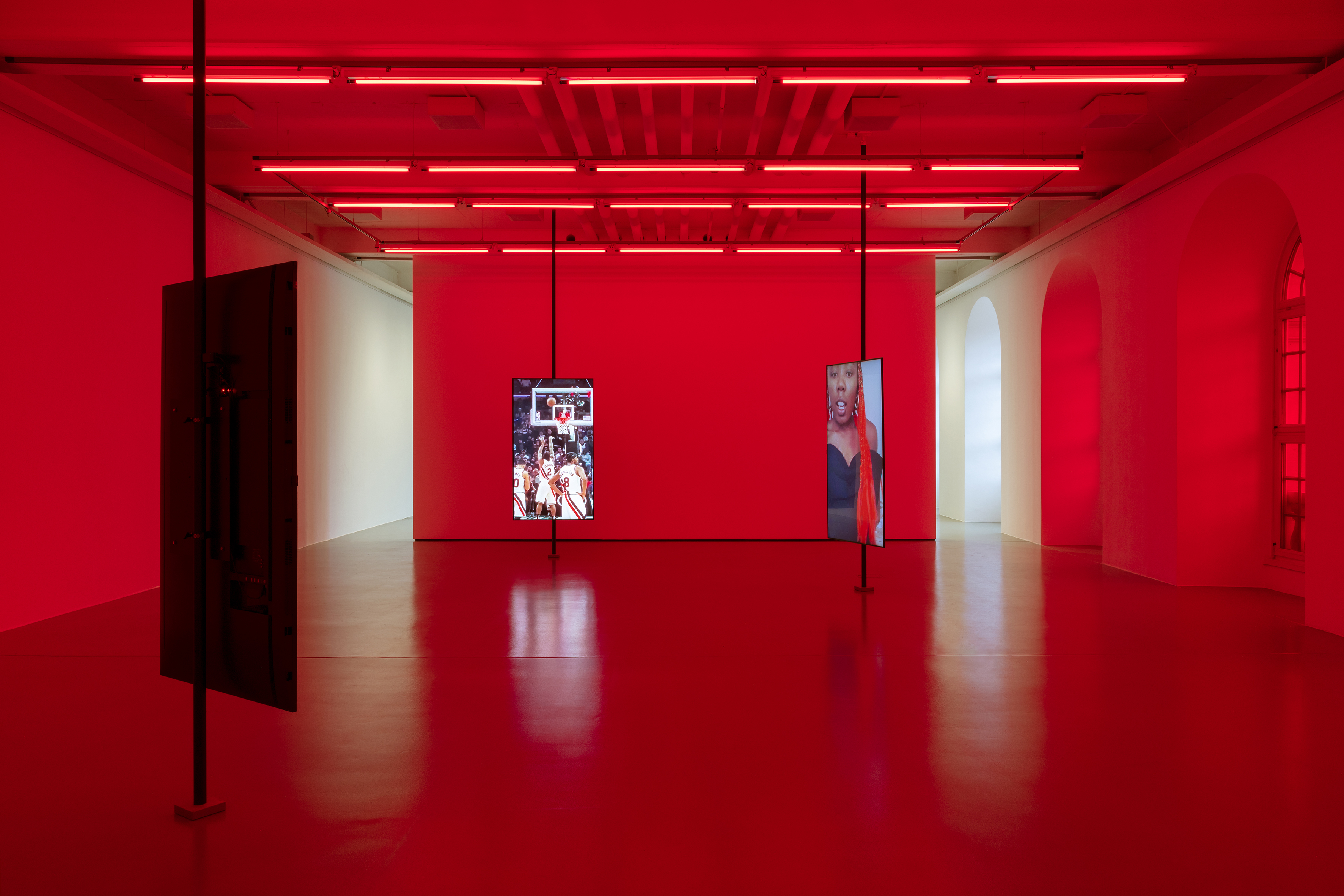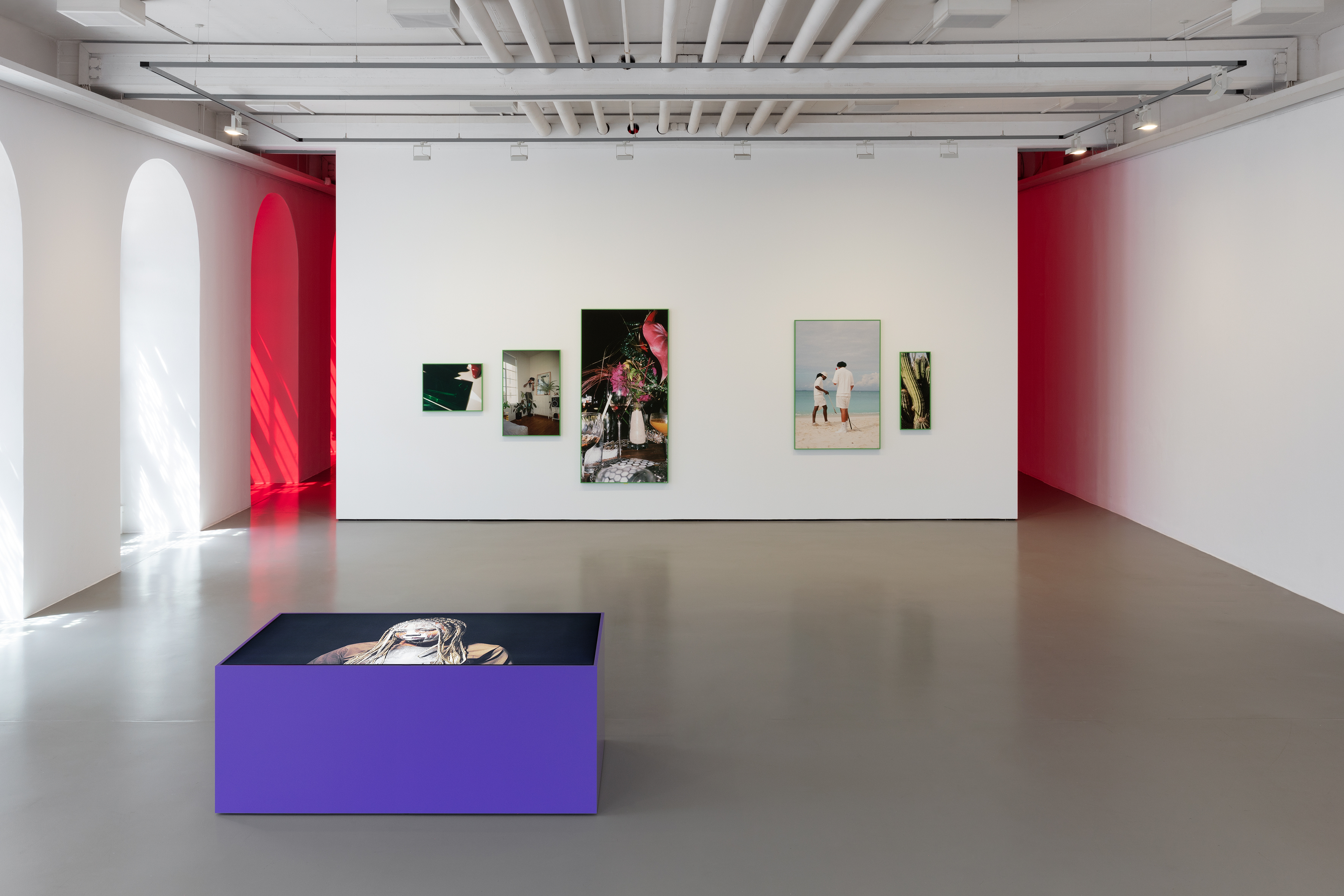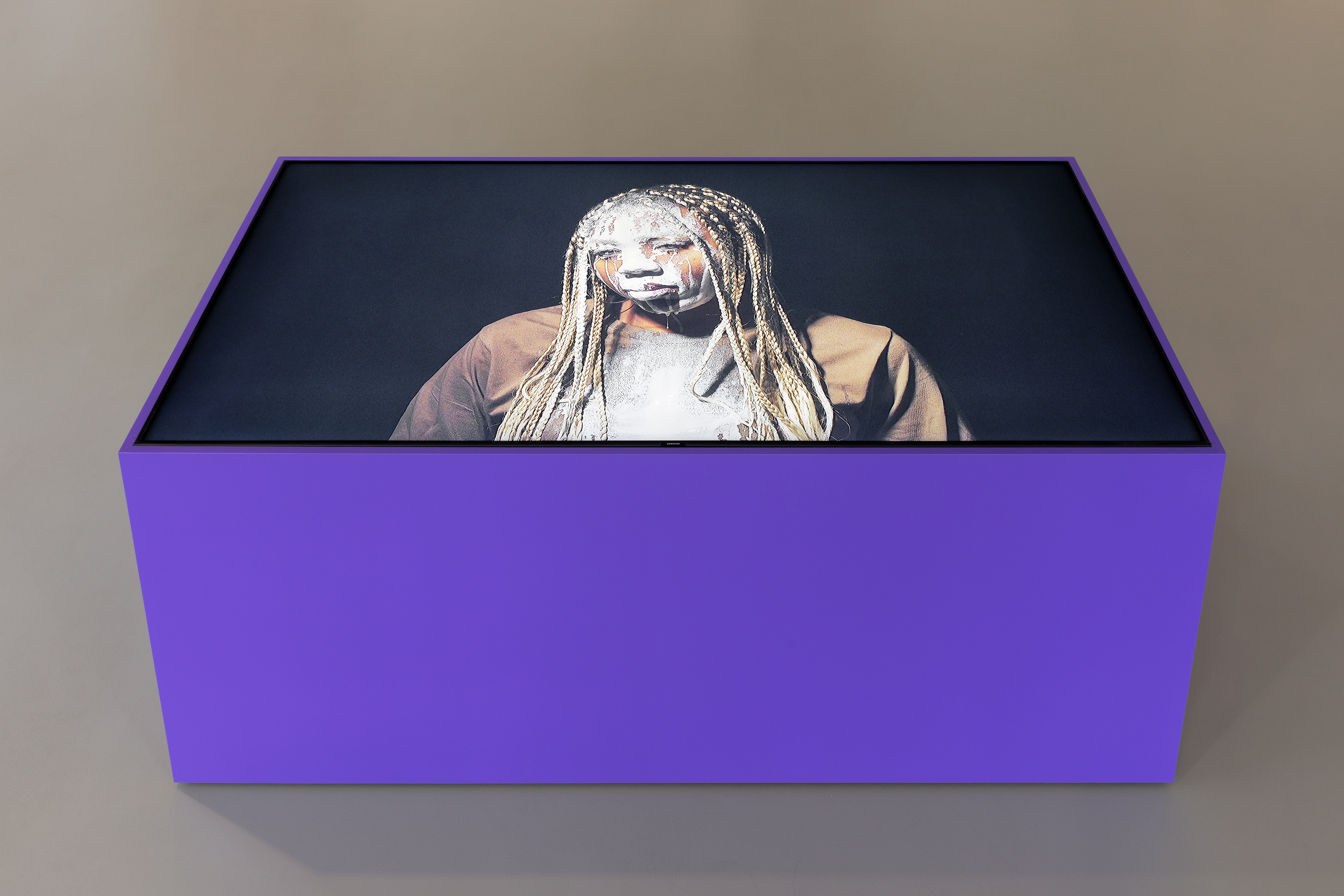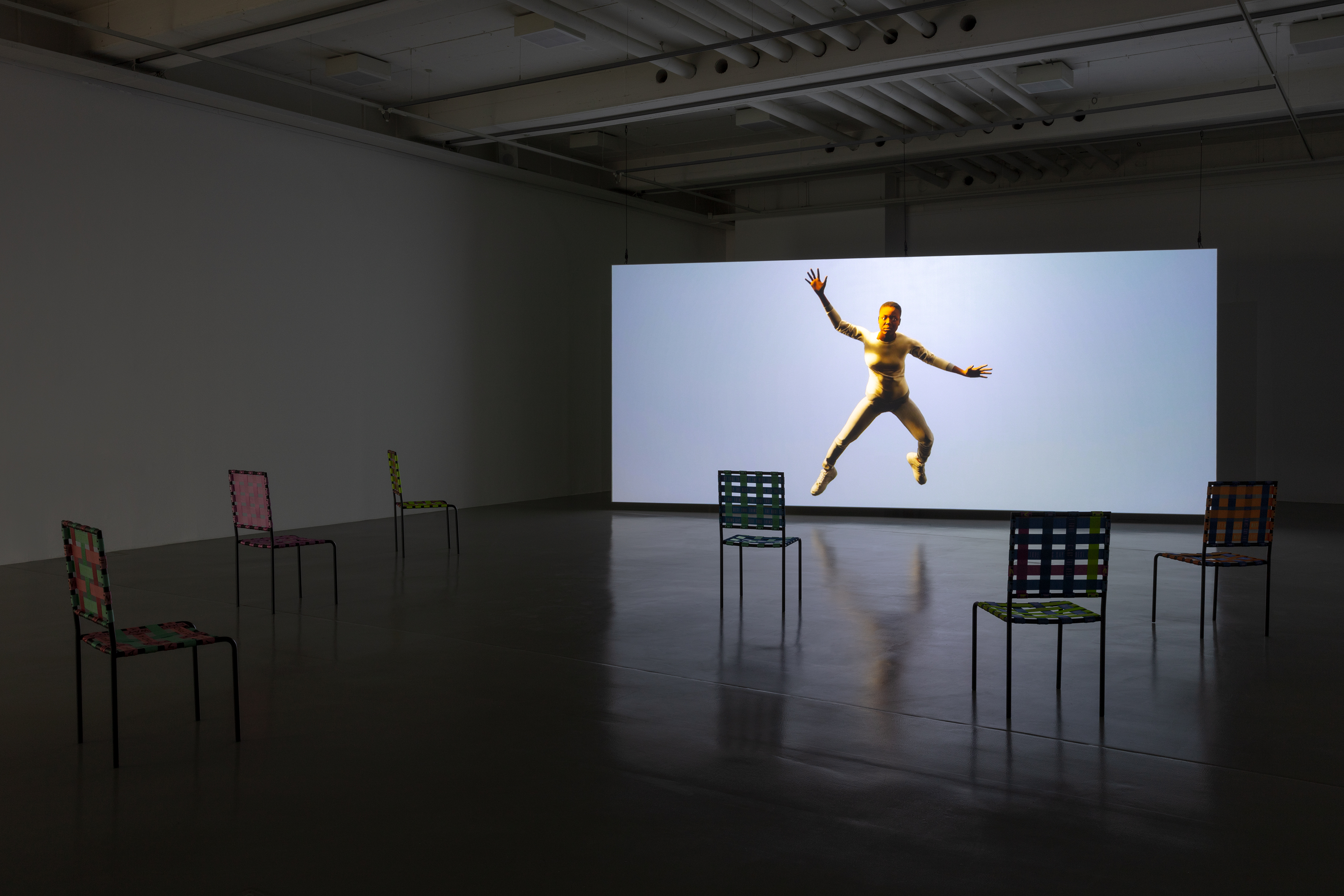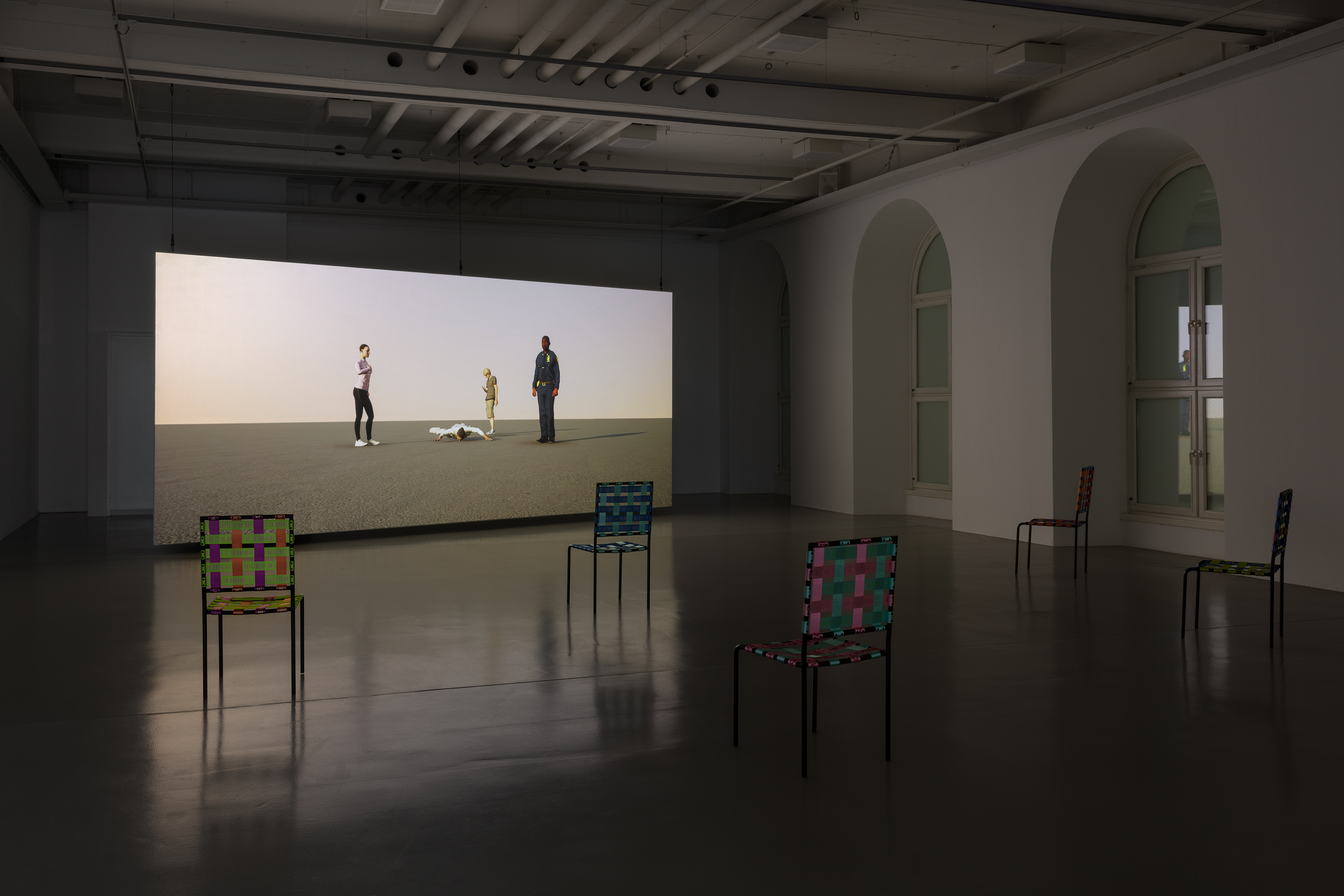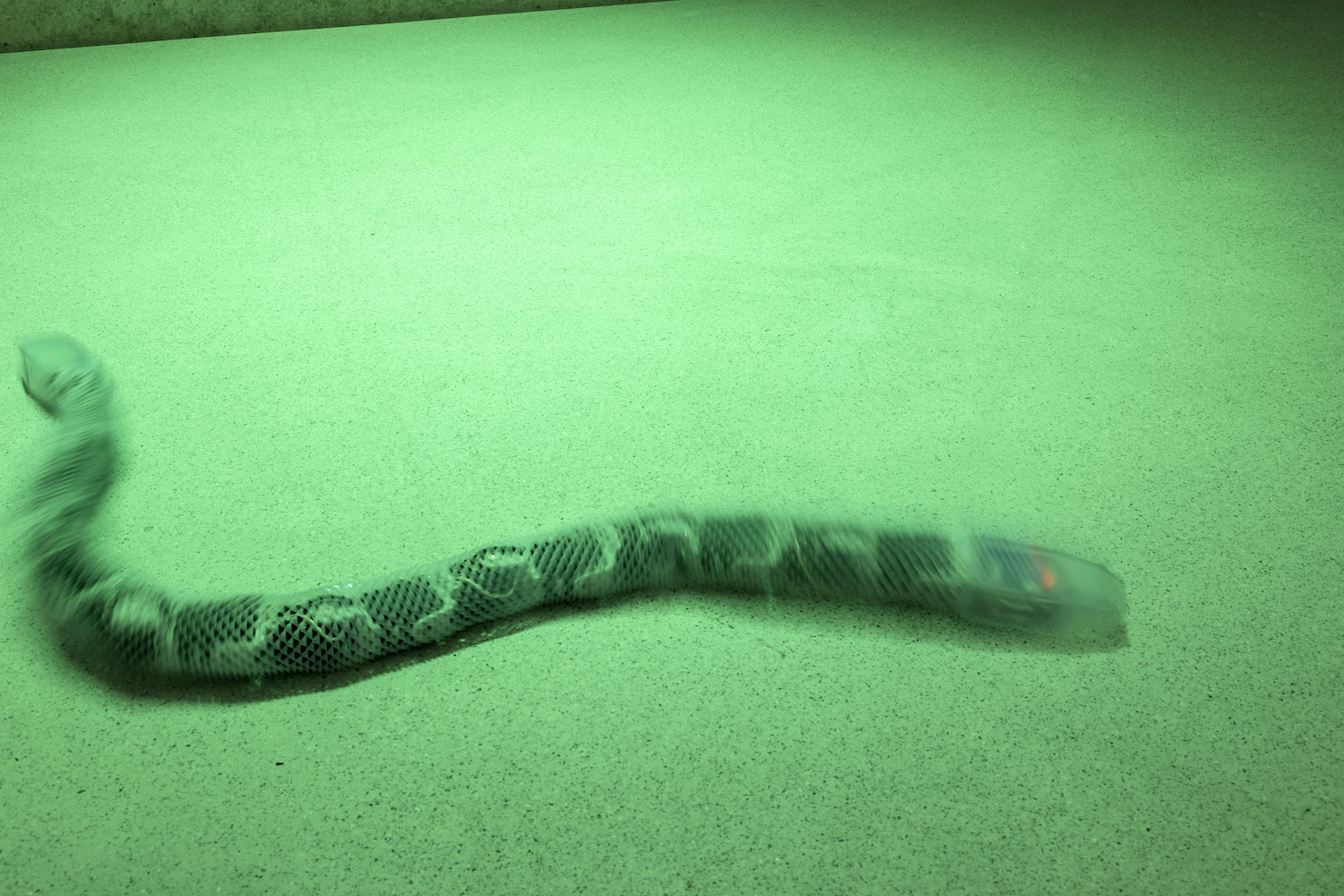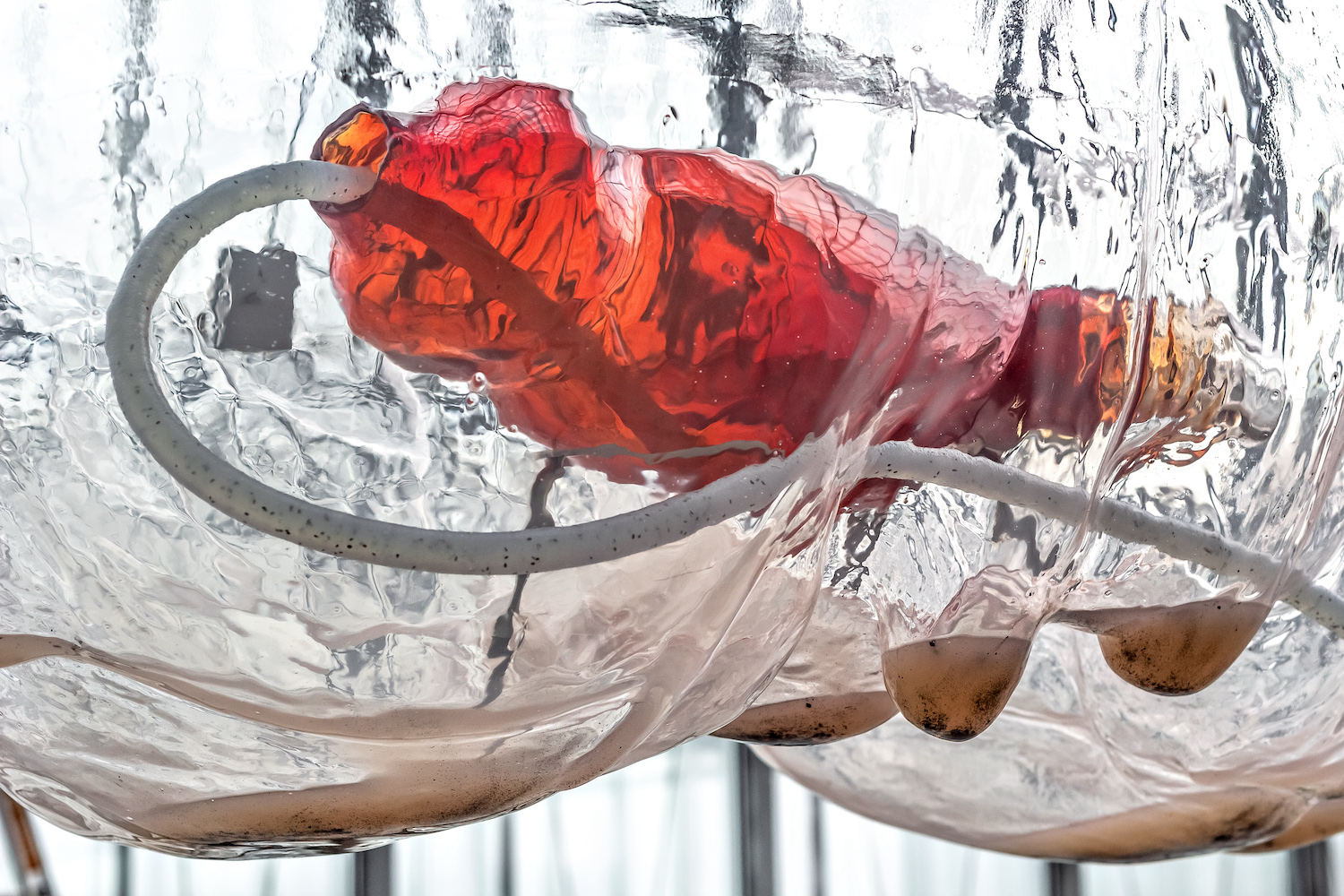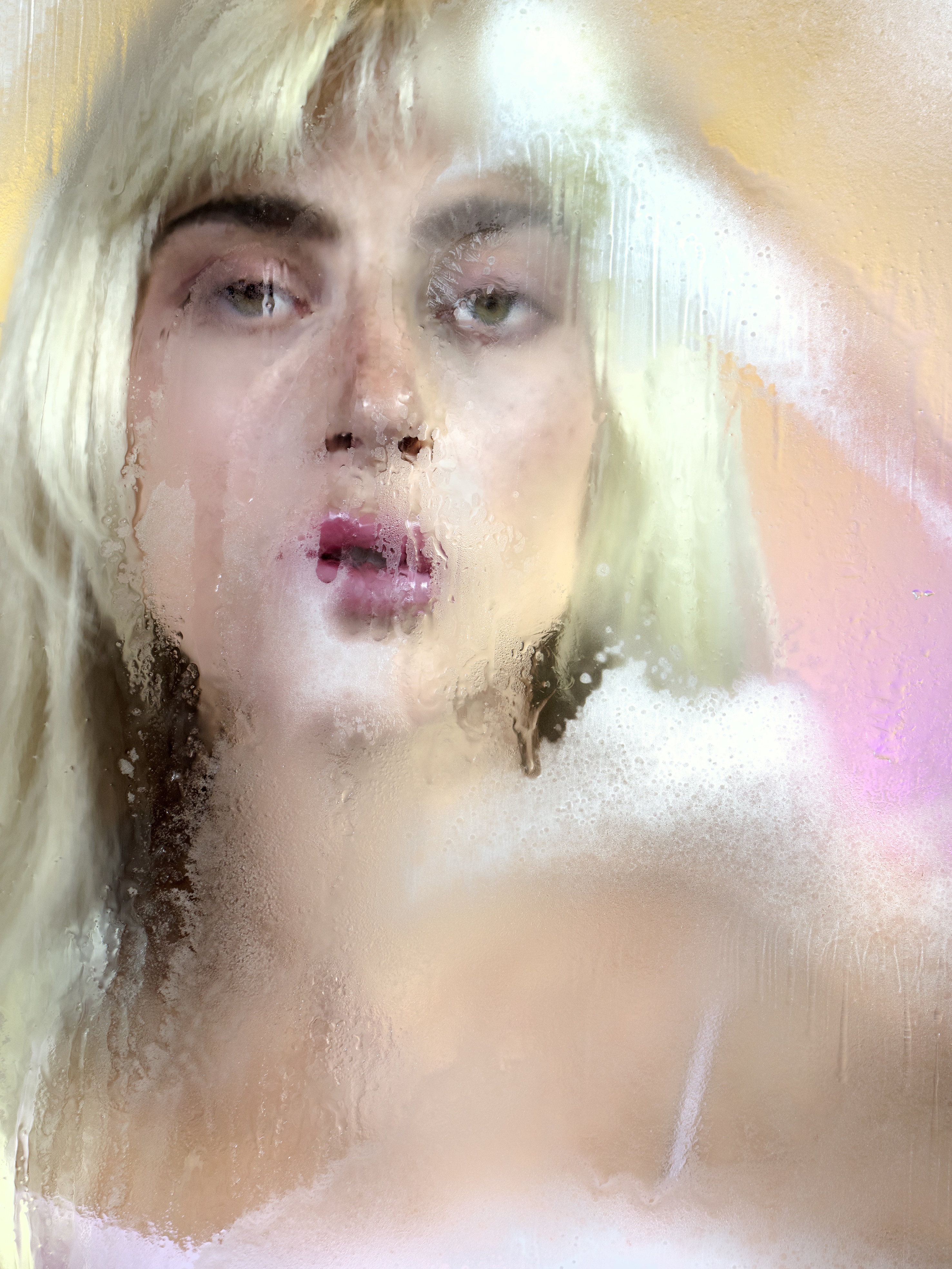Martine Syms’s video art, photographs, and autobiographical fiction are anchored by a first-person narrator — with all her potential for dumb mistakes and quixotic drama. Syms, whose work was shown at MoMA in 2017, has been compared to Arthur Jafa, who traces Black American culture by way of an archival, anthropological strategy. While Syms’s publishing ventures have created communities around her exploration of Blackness, her art addresses the “modern human condition” from an intimate point of view — moving the drama of existence across the fault lines of identity politics. “Aphrodite’s Beasts” is Syms’s first solo show in Germany.
“Hiiiiii! Hi, hi, hi, hi!” Martine is smiling and waving on one of the vertical screens of Ugly Plymouths (2020). The three-channel video installation forms a half circle in the center of the gallery space — a little bit like a group at a party, leaving an open spot for you. You may need a moment to acclimate as a babel of voices and images wash over you. Ugly Plymouths adopts cues from social media, texting, and online dating. The installation’s short, shaky clips emulate a cinematography popularized by Instagram Stories: a mere succession of “and, and, and” that doesn’t add up to any meaningful telos. There is just the passage of time, traffic jams (Martine is based in LA), sunset after sunset, and fireworks painting colors in the sky at the end of each loop. The flow of insignificant moments only congeals into narrative tension when Martine and a man (the work’s off- screen interlocutors) momentarily sync, which only seems to happen when they exchange platitudes from the playbook of twenty-first-century online dating.
The artist’s voice is present as well in DED (2021), by screen size and drama the core piece of the show. Here Martine is singing — her vocals shifting between elegy and ecstasy, confession and affirmation. During this fifteen-minute loop, Martine’s eerily realistic likeness, made from a 3-D scan of her body (the back of her shirt reads: “To hell with my suffering”), wanders a bleak CGI Hades. Self-motivation is the imperative propelling her avatar across an empty plane as she repeatedly performs gruesome acts of self-annihilation — a knife to her stomach, a bullet to her head — until she finally just explodes into pieces. Only the change of light marks the passage of time as our tragic heroine soldiers on — pulling herself together, standing up, throwing up, marching on, breaking down. Try again, fail again, fail better?
If the first work in the exhibition is a readymade gesture that reproduces the out-of-sync nature, inauthenticity, and inherent loneliness of today’s social media-informed interactions, the last one elevates the same subject matter onto a metaphorical, or rather theatrical, plane. Ded reads like an allegory for today’s freelancing, atomized, self-absorbed modern soul in its sad struggle to self-optimize.
The middle gallery of Fridericianum features a series of photographs along with Lesson LXXV (2017), a powerful devotional image commemorating the tear-gassing of protestors in the wake of the Black Lives Matter movement. The short video loop belongs to a chorus of 180 thirty-second video clips. In a gesture similar to Arthur Jafa, Lessons I-CLXXX (2014–18) capture emblematic moments of the Black radical tradition. In 2017, Lesson LXXV was broadcast in Times Square.
Syms’s cultural criticism takes a multi-platform approach, infiltrating our heavily commercialized environments and rehearsed interactions with ambiguous messages (among other merchandise in her online shop dominica.la the artist offers key chains printed with the words “Stop protecting yourself”). In line with Syms’s ventures outside of the museum’s walls, “Aphrodite’s Beasts” revises mantras and mentalities thoughtlessly rehearsed in advertising, inspirational Instagram quotes, and our most intimate interactions. Take, for example, Beckett’s famous verse quoted above. It goes on like this: “Try again. Fail again. Better again. Or better worse. Fail worse again. Still worse again. Till sick for good. Throw up for good. Go for good.”

